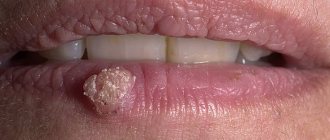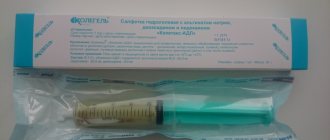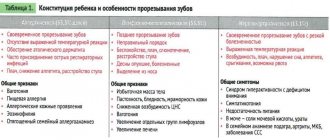- Symptoms of itching and burning
- Causes of dry and burning nose
- What complications can it lead to?
- Which doctor should I contact?
- Diagnostics
- How to get rid of unpleasant symptoms
- Treatment
A burning or itching sensation in the nose causes great discomfort.
This causes breathing problems, sneezing attacks, and makes it difficult to concentrate at work or relax. Often these manifestations are accompanied by lacrimation (especially after a bout of sneezing) or dryness in the nasal passages, which is aggravated by the appearance of crusts and difficulty breathing through the nose.
Itching and burning in the nose are not always harmless. They accompany respiratory diseases, allergies, and may indicate other serious pathologies.
Symptoms of itching and burning
If the burning and itching do not go away on their own within a few days, then they signal the onset of some disease. The following pathologies manifest themselves as burning or itching:
- Rhinitis/sinusitis. With rhinitis, the nasal mucosa most often suffers. Regardless of how it becomes deformed (swells, grows, atrophies), difficulties arise with the passage of air through the nasal passages. The mucus is difficult to remove, and the surface of the mucous membrane dries out.
- Scleroma. If dry mucous membranes are combined with nasal congestion, we can talk about a dangerous infectious disease - scleroma. The disease is characterized by the formation of scar tissue against the background of mucosal atrophy. The risk of scleroma is a severe course and rare more serious complications.
- Diabetes. The mucous membranes work with disturbances in diabetes mellitus. Dryness may spread to the salivary glands.
- Hormonal imbalances. Itching and burning in the nose sometimes occurs during pregnancy or in old age.
An itchy nose is often accompanied by secondary symptoms. Mucous discharge appears and dried crusts come off. With a cold - headache, fever, cough, runny nose, redness of the mucous membranes, rashes on the skin around the nose.
Medicines
Baking in the stomach - a reason to visit a gastroenterologist
Since one of the main causes of burning in the epigastric region is the excessive secretion of hydrochloric acid, the main part of the drugs is intended to neutralize it. The prescription of drugs when the stomach bakes should be entrusted to a gastroenterologist, and not self-medicate. Most likely, he will prescribe medications from the following pharmaceutical groups:
- Antispasmodics that relieve pain from spasms of the muscular layer of the stomach (No-spa, Drotaverine hydrochloride, Papaverine).
- Antacid drugs to reduce the concentration of gastric juice (Maalox, Gaviscon, Gastal, Gastrozol, Panum, Relzer, Hydrotalcite, Almagel, Ranitidine, Altacid, Rennie).
- Alginates to create a protective shell on mucous membranes affected by hydrochloric acid (De-nol, Tribimol, Omez, Omeprazole).
- Enzymes that promote food digestion (Creon, Mezim, Pancreatin, Festal).
- Probiotics and prebiotics for violation of the ratio of beneficial and pathological microflora (Linex, Hilak Forte).
Additionally, it is recommended to drink alkaline mineral water according to the regimen determined by the doctor and take vitamin complexes.
Causes of dry and burning nose
In addition to the symptoms of the disease, dry nasal mucosa develops for a number of external reasons:
- Dry air during the heating season causes dry mucous membranes.
- Allergies to pet hair, house dust, pollen, and chemicals cause itching in the nose, swelling of the mucous membrane, and lacrimation.
- Excessive use of vasoconstrictor medications or folk remedies in the treatment of a runny nose provokes dryness, burning and pain in the nose.
- Polyps inside the nose, deviated nasal septum, herpes, foreign objects inside the nasal passage - all this causes unpleasant sensations without a runny nose and drying out of the mucous membrane.
Vaginal burning: vaginal mycosis
The content of the article
The cause of burning pain in the vagina can be vaginal thrush. This is also indicated by redness, swelling and itching of the vulva and vagina. With thrush, symptoms usually worsen after sexual intercourse or before menstruation.
Thrush
The most characteristic symptom of this disease is vaginal discharge, resembling lumps of cottage cheese and sticking to the walls of the vagina.
What complications can it lead to?
With proper therapy, the condition of dryness and burning of the nasal mucosa can be eliminated within a few days.
It is not recommended to self-medicate without knowing the cause of the ailment. If the burning sensation in the nose is caused by chronic rhinitis, in which the mucous membrane becomes thinner or thicker and an unpleasant odor appears, it is necessary to undergo comprehensive treatment under the supervision of a doctor. Otherwise, the person’s condition will only worsen: fatigue will increase, the quality of sleep will deteriorate, and snoring will appear.
Being the cause of itching in the nose, allergies can lead to damage to the bronchi and, in particular, bronchial asthma.
A constant feeling of tension with difficulty breathing causes nervousness, mental instability, and stress. This, in turn, leads to psychosomatic disorders and hormonal disorders.
Consequences of ignoring a dangerous symptom
If the condition when it bakes in the stomach is not diagnosed and treated, the consequences can be the most unpredictable. Untreated gastritis and ulcers can lead to significant damage to the mucous membrane, including perforation of the stomach walls, gastric bleeding, and peritonitis.
In advanced cases, death cannot be ruled out. Constant irritation of the walls of the stomach by excessive release of hydrochloric acid and the reflux of bile into it can eventually lead to the development of an oncological process and the appearance of inoperable tumors.
Diagnostics
The specialist makes a diagnosis based on the patient’s complaints. At the appointment, it is necessary to inform about how the symptoms appeared, characterize the painful sensations and indicate their duration.
To make a diagnosis, it is important to know what medications the patient is taking, what his living and working conditions are, and whether he has recently experienced stress. It is imperative to name the chronic diseases that the patient suffers from or the tendency to allergic reactions.
To confirm the diagnosis, blood and hormonal tests are prescribed. Sowing of secretions or dermatoscopy (method of examining the surface of the skin and mucous membranes) is performed.
The doctor's attention will be drawn to enlarged lymph nodes, as well as the condition of the liver, spleen and thyroid gland.
How is a gynecologist examined?
At the Alan Clinic medical center, gynecological examinations are performed in comfortable conditions, using disposable sterile instruments. The initial appointment takes 40 minutes.
The initial examination by a gynecologist includes a standard gynecological examination, including:
- conversation with a doctor
- smear of vaginal discharge to determine the degree of purity
Depending on the clinical symptoms and complaints, the gynecologist may prescribe additional examination methods.
- scraping from the cervix for oncocytology
- Ultrasound of the pelvic organs
- extended colposcopy
- study for tumor markers CA-125, CA-15-3
How to get rid of unpleasant symptoms
Both before diagnosis and during treatment, you can rinse your nose with preparations based on sea water or use drops with silver ions to cleanse the mucous membrane and relieve the feeling of itching or burning of the mucous membrane.
An important point in the treatment of respiratory diseases is maintaining the required level of humidity and cleanliness of indoor air. The house must be regularly wet cleaned and dust must not accumulate. It is important that during the heating season the air humidity in the house or apartment is 40-60%.
Hardening, maintaining immunity, rules of personal hygiene, taking care of a balanced diet, combating physical inactivity and the absence of bad habits will create strong protection against damage to the nasal mucosa.
It is necessary to be attentive to the treatment of diseases of the upper respiratory tract and take care of respiratory protection when working with hazardous substances.
Vaginal burning: inflammation of the vagina
Inflammation of the vagina - vaginitis - is the result of a microbiological imbalance in the vaginal flora. The most common cause of disturbances in the vaginal ecosystem is the yeast that is responsible for mycosis vaginalis.
No less often diagnosed is bacterial vaginosis, a disease caused by anaerobic bacteria. Another cause of vaginal inflammation can be a protozoal infection or, less commonly, viruses.
The disease manifests itself as a burning sensation, pain when urinating, as well as watery, green or gray vaginal discharge with a very unpleasant fishy odor.
Vaginitis may also occur, for example, after pelvic radiation, adnexal removal, or chemotherapy. In this case, vaginal discharge appears with the wrong color and smell. The disorder is accompanied by burning pain and itching of the vagina and pain during sexual intercourse and urination.
Treatment
Getting rid of unpleasant sensations in the nose depends on how accurately their cause is determined.
If the cause of the itching is an allergy, then eliminating the source of the reaction will be the first step in treatment. Next, antihistamines are used and a special diet is prescribed. It is useful to rinse your nose with sea salt solutions. Corticosteroids are used in the most extreme cases and only as prescribed by a doctor.
If the cause of mucosal damage is a fungal infection, the otolaryngologist prescribes antifungal nasal and tablet medications.
To treat viral infections, the doctor prescribes local antiviral drugs in complex therapy. Bacterial infections are treated according to a similar principle.
Gynecologists in Kazan use the following methods of treating gynecological diseases:
- Drug treatment . Prescribed in accordance with test results.
- Local treatment . Sanitation of the vagina followed by application of a tampon with a medicinal drug, incl. Ultrasonic sanitation with the Gineton apparatus.
- Physiotherapy . Modern Androgyn and Mustang equipment is used, which are successfully used in the complex treatment of inflammatory diseases, hormonal disorders, as well as recovery in the postoperative period.
- Pharmacopuncture . Introduction to acupuncture points of medicinal substances that are indicated for various diseases (inflammatory, hormonal disorders, etc.).
- Ozone therapy
. Intravaginal and intravenous administration of drugs enriched with ozone contributes to the development of a powerful antioxidant effect, which can successfully cure inflammatory diseases, improve the immune system and reactive capabilities of the body. - Hirudotherapy . Widely used in the treatment of diseases such as endometriosis of the uterus and ovaries, inflammatory diseases, hormonal dysfunctions, infertility, etc.
Risk factors
Urologists are aware of certain signs and primary diseases associated with dysuria. These forms of predisposition should be taken into account when conducting diagnostics.
Key risk factors:
- Female. The narrower and shorter urethra in women is more likely to be invaded by pathogenic microorganisms.
- Treatment of oncology with chemotherapy. Painful urination can be a side effect of cytotoxic and cytostatic drugs.
- Age from 45 years for men. In middle-aged and elderly patients, prostatitis or prostate adenoma is more often diagnosed.
- Using unsafe intimate hygiene products, getting soap or shower gel into the urethra.
- Allergic reactions to various substances and tissues that come into contact with the external genitalia.
- Impaired immune function, facilitating the invasion of pathogenic microorganisms into the organs of the genitourinary system.
- Long-term catheterization of the bladder.
- Recent diagnostic procedures, such as a urethral smear.
- Surgical interventions in the area of the external genitalia and bladder.
- Eating too spicy foods and coffee.
Discomfort when urinating, not accompanied by other symptoms, is often due to allergies and hygiene products.
Physiology of urine output
Urination is necessary to remove unnecessary metabolic products and harmful chemical compounds from the body.
Urine itself is formed in the kidney tissue as a result of blood filtration: nephrons successively remove ballast substances from the blood vessels and return necessary components, such as proteins and salts, to the bloodstream. More than one hundred liters of primary urine can be formed per day, but as a result of final filtration, 800-1500 milliliters of liquid per day are removed from the body. The excretory fluid formed in the kidneys penetrates into other parts of the excretory system for accumulation and gradual removal from the body. Approximately 500 ml of urine can be deposited in the bladder, and a person begins to feel the need to urinate when a quarter of the organ’s volume is filled. The signal received from the brain relaxes the sphincter and promotes the removal of fluid from the body through the urethra. In men, part of the urethra passes through the prostate gland, so prostate pathologies can cause dysuria.
general characteristics
The burning sensation, according to the subjective perception of most people, is characterized as a feeling of local heat with tingling and tingling. Usually accompanied by local hyperemia, pain and itching, and may be supplemented by the formation of rash elements (papules, blisters), peeling, and weeping of the skin. The burning sensation causes a desire to cool, soothe irritated skin, and sometimes to scratch the affected area, which often leads to worsening symptoms. In some cases, the pathological sensation is manifested by burning pain in one or another part of the body.
Causes
A burning sensation in the back in the area of the shoulder blades is a sign of osteochondrosis, muscle strain or strain, pinched nerves, or herniated intervertebral discs. Since discomfort is the main clinical manifestation of the listed pathologies, the patient undergoes a thorough differential (comparative) diagnosis. Causes that cause osteochondrosis, pinched nerve, intervertebral hernia, muscle sprain or strain:
- Sedentary lifestyle.
- Previous back injuries (regardless of the statute of limitations of the injury and their type).
- Alcohol abuse.
- Long-term use of medications.
- Hormonal imbalance (the disorder can be determined through laboratory blood tests).
- Obesity.
- Chronic endocrine diseases.
- Constantly staying near a source of toxic exposure (for example, working in hazardous conditions).
Doctors have established a relationship between spinal diseases and a hereditary predisposition to their development. Problems with the musculoskeletal part of the back are caused by hypothermia, exhausting physical labor, and a monotonous type of professional activity (performing the same type of movements).
Disease of the muscles, spine and ribs occurs primarily (unaccompanied by other diseases) or secondary (against the background of the underlying pathology).
Why does a burning sensation occur after urination in men?
In men, the length of the urethra is much longer than in women, so bacterial inflammation occurs less frequently in them, and among the main causes, in addition to sexually transmitted infections, the following can be identified:
- The consequences of inflammation of the urethra are urethritis.
- Urolithiasis, when sediments of urine, consisting of insoluble salts, irritate the mucous membrane, passing through the urethra.
- Most often, burning sensation after urination in men occurs in the presence of various diseases of the prostate gland (for example, prostatitis), which provoke a violation of the outflow of urine.
Preventive actions
In order to prevent the development of this unpleasant symptom, you need to take a number of measures:
- Treat inflammatory processes in a timely and correct manner;
- Eat right, minimize the consumption of salty, spicy, excessively fatty foods;
- To live an active lifestyle;
- Avoid stressful situations;
- Follow a daily routine, set aside enough time for sleep;
- Regularly undergo preventive examinations.
Don't forget: a burning sensation in the sternum can be a sign of serious illness. Its occurrence is a reason to seek professional medical help!
Make an appointment through the application or by calling +7 +7 We work every day:
- Monday—Friday: 8.00—20.00
- Saturday: 8.00–18.00
- Sunday is a day off
The nearest metro and MCC stations to the clinic:
- Highway of Enthusiasts or Perovo
- Partisan
- Enthusiast Highway
Driving directions











